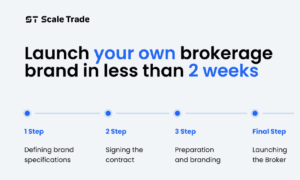BYD postpones choosing a Mexico plant until after the US election in order to account for possible changes in tariffs and policies.
TakeAway Points:
- BYD postpones investing in a Mexico factory until after the US election, hoping to capitalise on any changes in presidential candidate policies.
- Tesla also decides to postpone its plans for a $10 billion mega-factory in Nuevo Leon as it awaits election results and any tariff effects.
- For automakers like BYD, the Biden administration’s 100% tariffs on Chinese EVs and export monitoring of Mexico create additional uncertainty.
BYD’s Pauses Mexico Plant Plans
China’s leading electric vehicle manufacturer, BYD Co., has decided to delay announcing a significant plant investment in Mexico until after the upcoming US election. This decision comes as global businesses adopt a cautious approach due to potential shifts in American policy.
According to sources familiar with the matter, BYD had been considering three locations for a car production facility in Mexico but has currently paused its search. The outcome of the presidential race between former President Donald Trump and Vice President Kamala Harris in early November is a key factor influencing this postponement.
One of the potential locations under consideration was around Guadalajara, a region that has developed into a technology hub often referred to as Mexico’s Silicon Valley. BYD had sent a delegation to visit the area in March.
Additionally, Stella Li, BYD’s executive vice president, visited Mexico City in February for the launch of the automaker’s Dolphin Mini model. Senior management also attended the Formula E Mexico City E-Prix in January, showcasing the company’s interest in the region.
US Election’s Effect on Investments
The US election’s outcome is not only affecting BYD but also other major automakers. Tesla Inc., for instance, has put its planned mega-factory in Nuevo Leon, Mexico, on hold pending the election results.
Tesla CEO Elon Musk, who has endorsed Republican nominee Donald Trump, faces potential tariffs on products made in Mexico if Trump wins. Tesla had announced plans to invest $10 billion over several phases in the Nuevo Leon plant.
Mexico is strategically attractive for foreign automakers due to its proximity to the US and its inclusion in the North American free trade agreement with the US and Canada. BYD, like other Chinese automakers, is looking to localize production to avoid punitive tariffs on imported electric vehicles.
While BYD has stated that cars built in Mexico would primarily be for local consumption, the possibility of exporting affordable EVs to the US market remains enticing.
US Trade Policy and Tariffs
The Biden administration has already planned tariffs of 100% on Chinese EVs to ensure that the future of the auto industry is “made in America by American workers.” US Trade Representative Katherine Tai mentioned in May that the administration is monitoring any attempts by Chinese companies to export cars from Mexico into the US and is considering ways to block them if they seek to circumvent tariffs targeting EVs made in China.
BYD’s executive vice president, Stella Li, indicated in a Bloomberg News interview in late August that she plans to meet with Mexico’s incoming President Claudia Sheinbaum, who takes office on October 1. The company is still evaluating three locations for a factory in Mexico, but no final decision has been made.



































